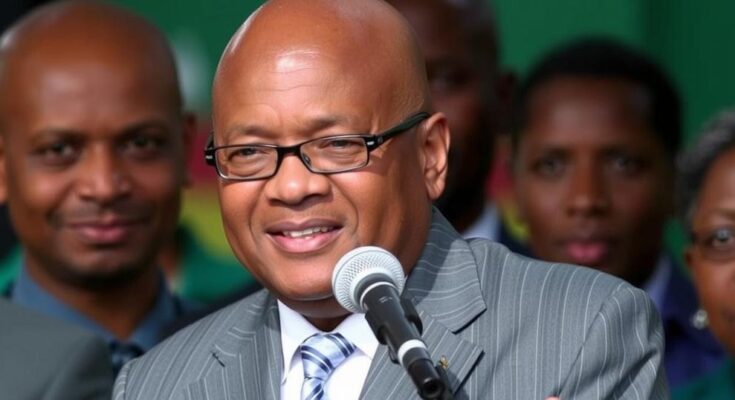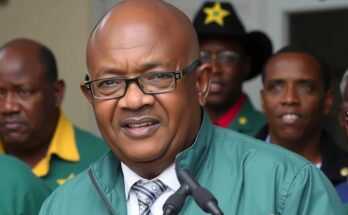Mozambique’s top court upheld the ruling party Frelimo’s election victory, igniting protests from opposition groups who claim electoral fraud. Recent unrest has resulted in numerous fatalities and affected business operations. Frelimo has acknowledged Daniel Chapo as president-elect, but discrepancies in vote count raise further concerns about the electoral integrity in the historically contentious political landscape.
On Monday, Mozambique’s Constitutional Council affirmed the victory of the ruling party, Frelimo, in the October elections, igniting continued unrest among opposition parties who allege electoral fraud. Frelimo, which has maintained power since the country’s independence in 1975, claims Daniel Chapo won approximately 65% of the vote. However, this figure contrasts with the 70% reported by the electoral commission, raising questions about the integrity of the electoral process. Protests erupted shortly after the announcement in various regions, particularly in the northern city of Nacala-Porto and Maputo, resulting in at least 130 fatalities due to confrontations with police, according to civil society organization Plataforma Decide.
Frelimo’s historical dominance has been marred by allegations of electoral manipulation, which the party has consistently refuted. Following the election announcement, multiple opposition representatives expressed outrage, claiming that the electoral truth had been disregarded. The post-election protests have not only shaken the political landscape but have also had tangible economic repercussions, impacting foreign businesses and contributing to a revised economic growth forecast by the International Monetary Fund.
Mozambique has been governed by the Frelimo party since its independence in 1975. The political climate has been characterized by allegations of electoral fraud, especially since the country introduced multiparty elections in 1994. The Constitutional Council serves as the final authority on electoral disputes, which has significant implications for political stability in the country. International observers have cited concerns about the fairness of recent elections, complicating the already tense atmosphere between the government and opposition parties.
In conclusion, the confirmation of Frelimo’s election victory by Mozambique’s Constitutional Council is likely to exacerbate civil unrest in the nation, with severe implications for both political stability and economic growth. The opposition’s fierce rejection of the election results, coupled with the violence that ensued, underscores the deep-rooted issues in Mozambique’s electoral system. Continued protests may further hinder foreign investment and economic progress, especially in light of recent natural disasters affecting the region.
Original Source: www.cnn.com




